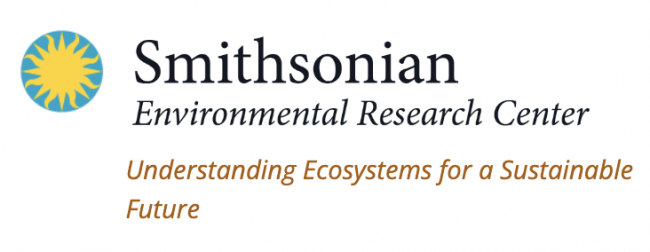Smithsonian Environmental Research Center (SERC)

The Smithsonian Environmental Research Center (SERC) provides science-based knowledge to meet the environmental challenges of the 21st century. SERC leads research on coastal ecosystems—where the land meets the sea—to inform real-world decisions for wise policies, best business practices, and a sustainable planet.
SERC research is urgent. The world’s coastal zones are home to more than 70 percent of the global population and experience intense economic activity. The rate of environmental change is accelerating at an alarming rate. Since its creation in 1965, SERC has been conducting peer-reviewed research to understand the causes and consequences of rapid change in Chesapeake Bay and around the world.
RESEARCH
Headquartered on Chesapeake Bay, the nation’s largest estuary, SERC sits just 25 miles from the nation’s capital. Its 2,650-acre campus spans forests, wetlands, marshes and 15 miles of protected shoreline. The site serves as a natural laboratory for long-term and cutting-edge ecological research. Here scientists explore the most pressing issues affecting the environment, including:
- water quality
- fisheries
- invasive species
- conservation
- land use
- toxic chemicals
- global change
SERC research extends to other sites around the world. In addition to the Romberg Tiburon Center on San Francisco Bay, a branch of SERC’s Marine Invasions Laboratory, SERC ecologists have worked in places such as Alaska, Florida, Belize, Panama, the United Arab Emirates and the Ross Sea off the coast of Antarctica.
EDUCATION
SERC explains environmental science in ways that change how people view the biosphere, inspiring them to be responsible stewards of the Earth. SERC staff and volunteers lead hands-on education programs for grades K-12 that align with the Next Generation Science Standards. Teachers can also take advantage of SERC's professional development programs. Adults can learn directly from scientists at SERC's free monthly evening lecture series, or go even deeper by working alongside the ecologists as citizen scientists. The campus is open for drop-in visitors, school groups and citizen scientists to learn about the natural world and join in ecological research.
Learn more about our Citizen Science and Education Programs
SUCCESS STORIES
SERC aims to find solutions to the urgent environmental issues in the daily news. A few key accomplishments include:
- Reducing mercury pollution into the food chain and seafood
- Rescuing blue crabs and other fisheries from decline, using science to inform managers and policymakers
- Measuring the carbon sequestration of coastal ecosystems
- Finding land management strategies to reduce nutrient pollution
- Developing effective strategies for coastal shoreline stabilization
- Protecting endangered and threatened orchids of North America
- Guarding against invasive species through field surveys, ship management with the U.S. Coast Guard and the creation of a national database